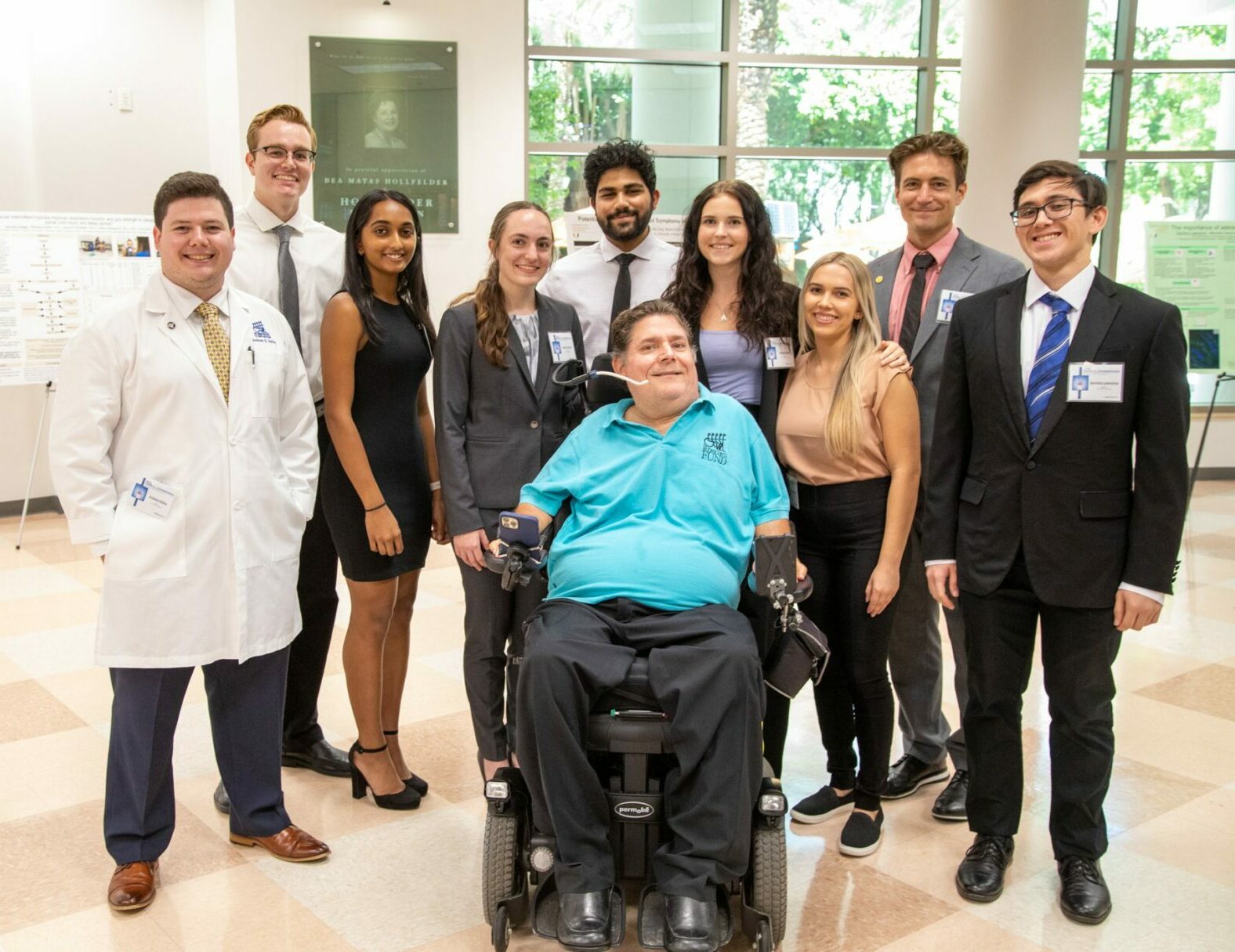(August 1, 2022) Last week marked the conclusion of the 2022 Miami Project to Cure Paralysis Henry G. Steinbrenner Scholars Program, a 10-week funded, merit-based, research-driven summer research internship. The program achieved its objective of expanding and diversifying the next generation of scientists in the clinically relevant yet underrepresented field of neurotrauma, culminating with the Steinbrenner Scholars Research Day where a panel of expert judges dubbed winners from oral and poster presentations given by the program’s participants on the research they conducted during the program.
The mission of The Henry G. Steinbrenner Scholars Program is to train the next generation of neuroscientists focused on developing new treatments and cures for some of the world’s most complex neurological conditions including traumatic brain and spinal cord injury, multiple sclerosis, amyotrophic lateral sclerosis, muscular dystrophy, Parkinson’s disease, Alzheimer’s disease, stroke, and dementia. The regularity of these conditions—affecting more than one billion people alive now—increases in an aging global population and represents some of the most substantial health care challenges facing the world today. Great strides have been made, but remaining challenges warrant our efforts to align the brightest young minds to the field. Since its inception, The Miami Project has trained more than 500 post-doctoral fellows, graduate students, and visiting scholars. The Steinbrenner Program continues this mission.
“This program is unique in that we seek a specific type of applicant that comes in with certain foundational skills and mind set,” says program director David W. McMillan, Ph.D., The Miami Project’s Director of Education and Outreach. “From day one the participants are paired up with a faculty mentor and hit the ground running in the lab,” Dr. McMillan says, adding “…explaining, in part, the high quality of the research projects they contribute to.” Along with the 40 hour per week, mentored laboratory research experience, the program achieves its educational mission via thrice weekly classroom sessions including didactic and career development lectures and facilitated “journal club” interactions.
This year’s Steinbrenner Program included eight participants, and along with the broad mission of training the next generation of neuroscientists, they achieved the goal of diversifying the pool of young neuroscience trainees. The class of 2022 was 33% White non-Hispanic, 25% Hispanic, 25% Asian, and 17% Native Hawaiian/Pacific Islander. At the program’s onset the class was comprised mostly of aspiring clinicians, with one biomedical engineer. At the time of the mid-term assessments, the participants research interests and confidence had grown so that all but one reported a strong interest in applying to combined M.D./Ph.D. programs to pursue a physician-scientist career as both researchers and practitioners.
“I am so encouraged about the next generation of neuroscience students when I hear what they have done in their short time with us as part of the Henry G. Steinbrenner Scholars Program at The Miami Project,” said Marc Buoniconti, President of The Miami Project. He continued, “It is inspiring to meet all these young brilliant researchers and realize the field will be in great hands going forward.”
The program crescendoed at the Steinbrenner Scholars Research Day where the program’s participants gave two minute “pitch”-style oral presentations about the research they conducted, followed by in-depth communication of their findings via the classic poster dissemination format. A panel of three expert judges—pulled from The Miami Project’s deep talent pool representing clinical, translational, and basic science with government and industry partnerships—scored the participants on six categories. Aditi Gorthy ranked first, Aidan Kunju second, and Lauren Tierny third. All participants were awarded the prize of Marc Buoniconti’s company and stirring speech he gave to motivate them to carry on contributing to advancements in the field of neuroscience. A special thank you to Maria Chagoyen from The Miami Project for facilitating the program and coordinating all the logistics, especially for Steinbrenner Scholars Research Day.

